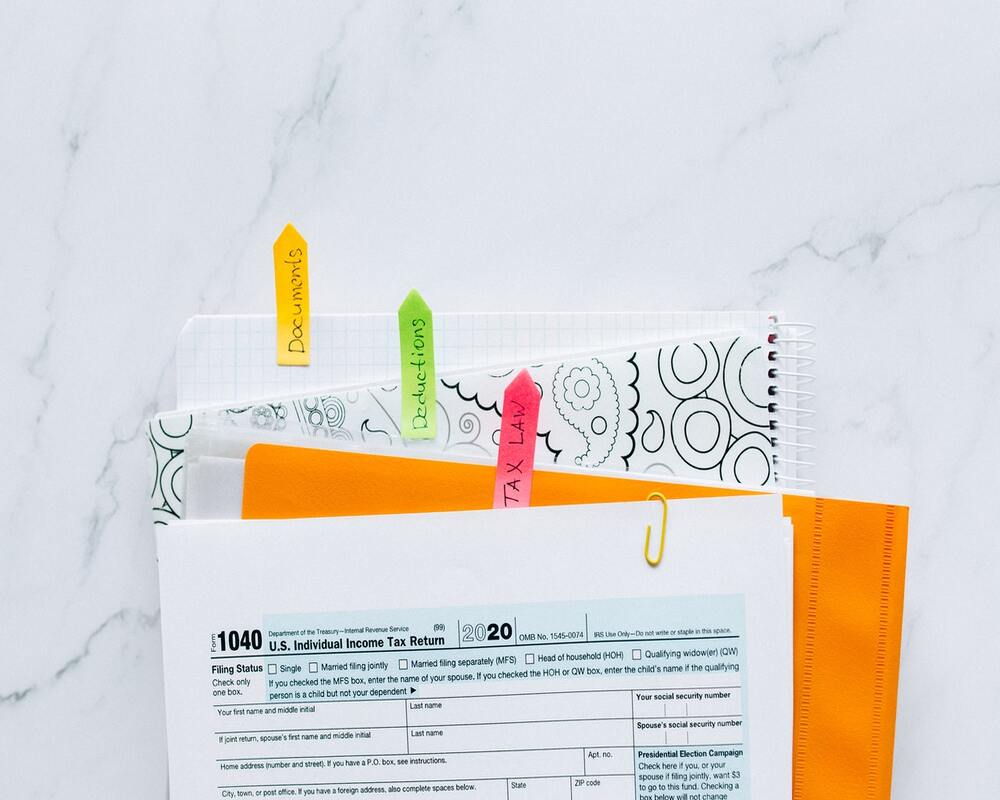
Driven CPAs constantly seek paths to continue learning and advancing their careers. Being a CPA means you're using data to solve challenges and gain insights, like analyzing financial statements to create forecasts or auditing internal systems to ensure accuracy and transparency. But forensic accounting takes this to the next level, so if you have a particular interest in solving puzzles, this may be the right option for you.
A forensic accountant works real-life “Who done it?” scenarios by uncovering trails of evidence using financial data. Not only are they in high demand and have a higher average salary than other accounting roles, this specialization is perfect for a curious mind that’s willing to dig for answers while also considering the big picture.
If you’re not familiar with this area of accounting, read on to answer whether it fits your interests and aspirations. If you already envision a career as a forensic accountant, we can help you get there.
Table of contents
- What is forensic accounting?
- What does a forensic accountant do?
- How do I become a forensic accountant?
- Career opportunities
- Forensic accountant vs fraud examiner
- Salaries
- CPE courses
What is forensic accounting?
Forensic accounting is a specific practice area that blends accounting, research, and investigation to determine and prevent financial crimes. Accountants working in this area often use financial accounting and audit practices as well as investigative techniques and legal knowledge to analyze and interpret financial records to determine fraud.
Key differences between financial accounting and forensic accounting:
| Financial accounting | Forensic accounting | |
|---|---|---|
| GAAP | Yes | Yes |
| GAAS | Yes | Yes |
| Tax law | Yes | Yes |
| Financial analysis | Yes | Yes |
| Bookkeeping | Yes | Yes |
| Investigative techniques | No | Yes |
| Fraud detection | No | Yes |
| Legal knowledge | No | Yes |
| Forensic technology | No | Yes |
What does a forensic accountant do?
Forensic accountants analyze financial accounts linked to legal cases and are experts in how they use accounting best practices during investigations. They scrutinize over records, trace funds, recover lost assets and create due diligence reports.
Criminal law or loss prevention
Forensic accountants often work for financial institutions or law enforcement to solve or prevent criminal activities. They analyze data to determine whether a crime has been committed and probability of criminal intent, in cases such as identity theft, financial falsification, securities fraud, insurance fraud, product liability claims, patent infringements and breach of contract.
Forensic accountants often testify as expert witnesses in criminal cases, appearing in trial to explain the nature of financial crimes, as well as the details of how a specific crime was committed. They must have a deep understanding of financial law and how it is used (or misused) across industries.
Forensic accounting also involves anti-fraud risk assessment, which is loss prevention through analysis of financial records and ethics principles, pinpointing potential at-risk areas and providing prevention techniques. Forensic accountants often testify as expert witnesses in criminal cases, appearing in trial to explain the nature of financial crimes, as well as the details of how a specific crime was committed. They must have a deep understanding of financial law and how it is used (or misused) across industries.
Insurance investigations
While most insurance claims are reviewed and determined by the adjuster, a forensic accountant can provide a more objective, informed analysis of economic losses, going beyond surface information to analyze different angles and quantify the true cost of a claim's economic damages. These may include vehicle or home accidents or malpractice suits.
Civil cases
Attorneys in family law and civil cases often rely on forensic accounting to support litigation when their clients are divorcing or working through a custody issue. A specially trained accountant can dissect financial records to see if a requested amount of support is founded or if one party is hiding funds from the other.
How do I become a forensic accountant?
You could technically work as a forensic accountant with only a bachelor’s or master’s degree in accounting or forensic accounting, but having a CPA license and supporting your knowledge with forensic accounting CPE courses can help open the door to a new career path.
| Certification | Requirements | Focus |
|---|---|---|
| Certified Forensic Accountant (CRFAC) | CPA with two or more years of experience, pass the CRFAC Exam |
|
| Certified in Financial Forensics (CFF) | 1,000 hours of forensic accounting experience, pass the CFF exam, obtain 75 hours of certified professional education (CPE) in forensic accounting |
|
| Certified Forensic Examiner (CFE) | Become a member of the Association of Certified Fraud Examiners and pass the CFE exam |
|
| Certified Forensic Financial Analyst (CFFA) | Enroll in CFFA program through Financial Forensics Institute and pass the certification exam |
|
| Government Forensic Accountant (GFA) | Two years of experience in government accounting or passing score on matrix assessment; enroll in Forensic Accounting Review course with the American Board of Forensic Accounting |
|
Career opportunities for forensic accountants
With professional training and certifications in forensic accounting, you open a plethora of career opportunities. Especially in today’s complex financial environment, both private and public sectors need forensic accountants now more than ever.
Government
The IRS, FBI, Treasury, Drug Enforcement Agency (DEA) and many other government agencies rely on forensic accountants to trace criminal activity. They uncover tax fraud and money laundering, as well as evidence to be used in criminal trials. Forensic accountants even work to prevent security threats by tracking finances linked to organized criminal and terrorist groups.
Common job titles for forensic accountants working in government include forensic accountant, forensic auditor and investigative auditor.
Financial institutions and accounting firms
Banks and insurance companies hire forensic accountants to ensure compliance with all aspects of the law, investigate claims and detect fraud. They have the very important role of quantifying damages incurred and determining if criminal acts were committed.
Likewise, accounting firms often hire forensic accountants in-house, offering their advisory service to determine fraud, assess claims and review legal compliance.
Law firms
Banks and insurance companies hire forensic accountants to ensure compliance with all aspects of the law, investigate claims and detect fraud. They have the very important role of quantifying damages incurred and determining if criminal acts were committed.
Likewise, accounting firms often hire forensic accountants in-house, offering their advisory service to determine fraud, assess claims and review legal compliance.
Risk consultants
As experts in financial fraud and theft, forensic accountants may also assist in risk analysis and loss prevention. During a merger and acquisition, a forensic accountant may perform an independent review of one or both companies to help inform and protect financial interests. In another case, a forensic accountant may be hired for internal analysis or to help navigate an outside inquiry, also with the goal of mitigating financial loss.
Forensic accountant vs fraud examiner
The terms “forensic accountant” and “fraud examiner” are sometimes used interchangeably. However, while overlap does exist in their skillsets and knowledge, the two positions are not the same.
Fraud examiners inspect financial documents and investigate evidence to determine, specifically, if fraud has been committed. They research suspicious activity and cases of alleged fraud, looking for hidden money and any other incriminating evidence.
Fraud examiners also train within organizations to help prevent and predict cases of financial fraud. Fraud examiners and forensic accountants both rely on a solid understanding of GAAP and financial law. But the roles differ in that fraud examiners do not hold the same litigative responsibilities as forensic accountants.
Likewise, forensic accountants are employed on a wider range of cases than just fraud, including disputes like breaches of contract, asset valuation, insurance claims and criminal investigation linked to a financial trial.
Forensic accountant salaries
One piece of evidence that isn’t buried: there is a growing demand for forensic accountants. The U.S. Bureau of Labor Statistics (BLS) projects a 7 percent growth1 this decade in the “accountants and auditors” category, meaning a greater number of new opportunities and higher job security. This also means that the time and monetary investment you make into earning forensic accounting credentials is likely to pay off with an opening that advances your career and brings your goals closer to fruition.
This growing demand is also reflected in average salary. The average salary varies depending on experience, certifications, and location, but estimates put it between $77,2432 and $110,4083.
CPE courses for forensic accountants
If you're ready to make the shift to forensic accounting, Becker has the CPE courses to help you build your skills and see career-long success solving puzzles and fighting financial crimes.
While forensic accounting is a complicated specialization, we want you to be able to attain your goals rather than be overwhelmed. Explore our CPE catalog and map out your path to gaining the skills you need and earn the credentials to unlock your ideal job opportunity.
Choose Prime CPE and access our entire catalog
A Prime CPE subscription gives you a full year of access to our entire CPE catalog, so you can not only get the forensic accounting courses you want to take, but also the updates, ethics courses, and more you need to meet your state's requirements. Best of all, you get it all at an incredible value!








